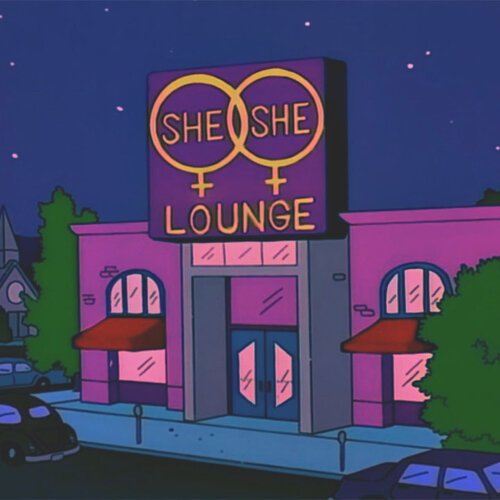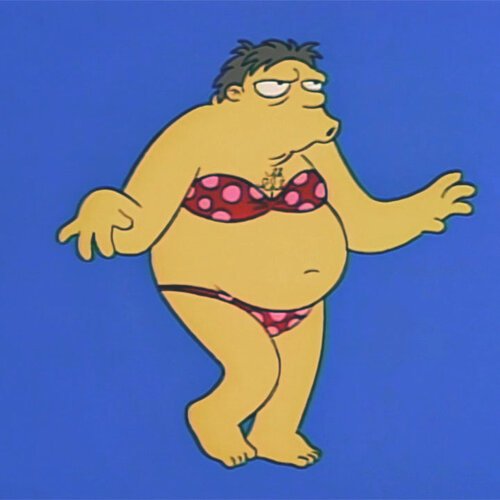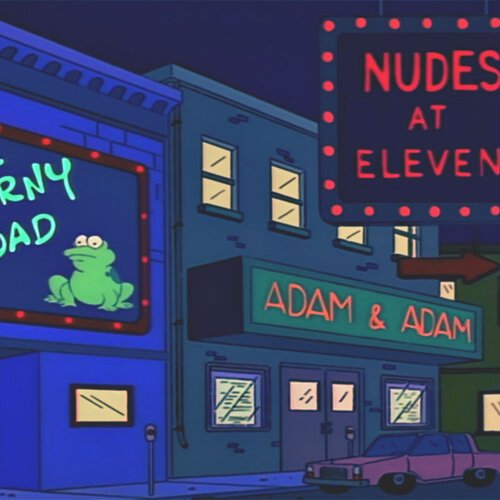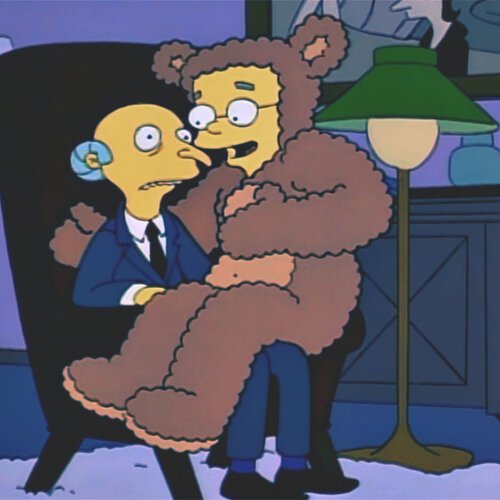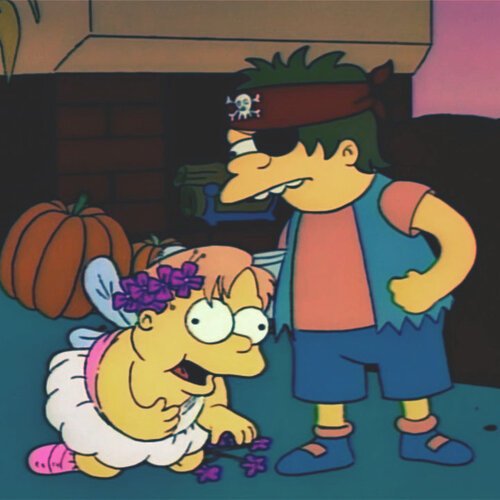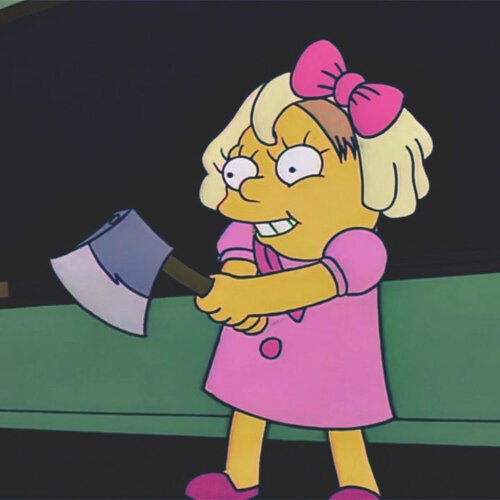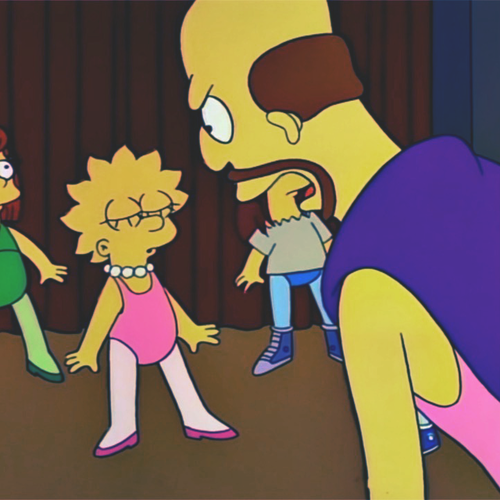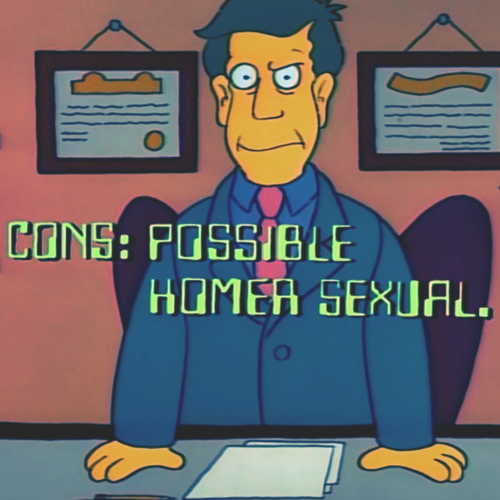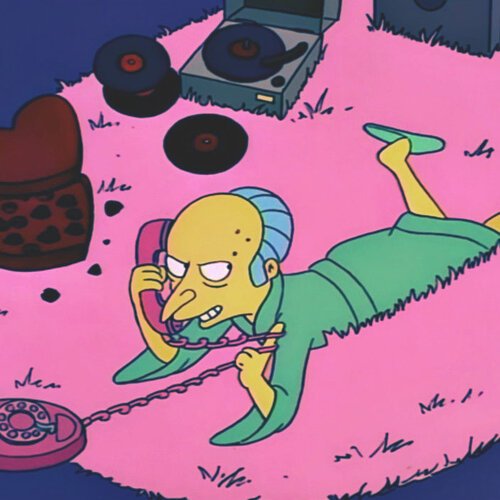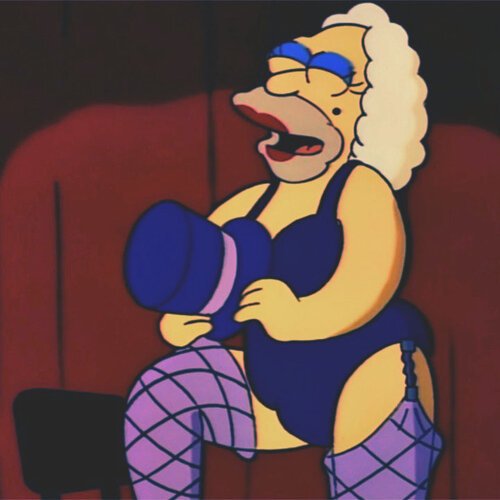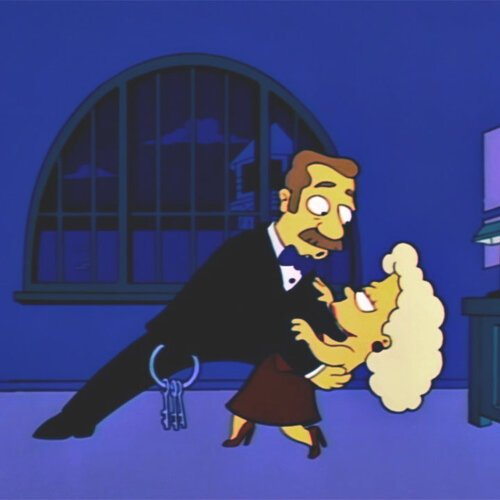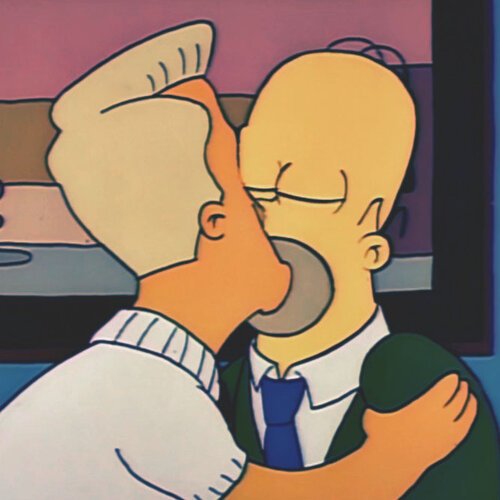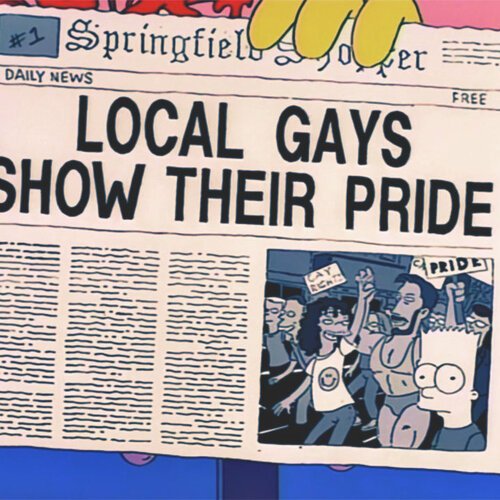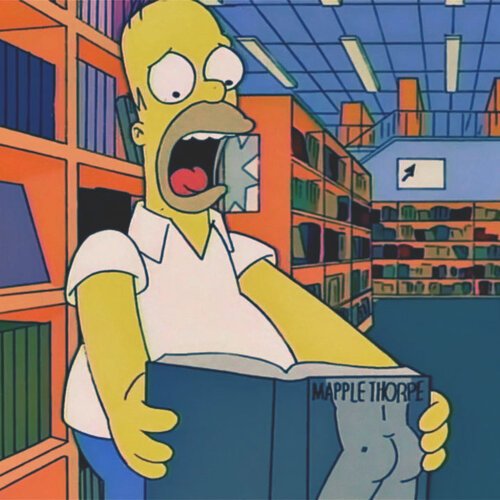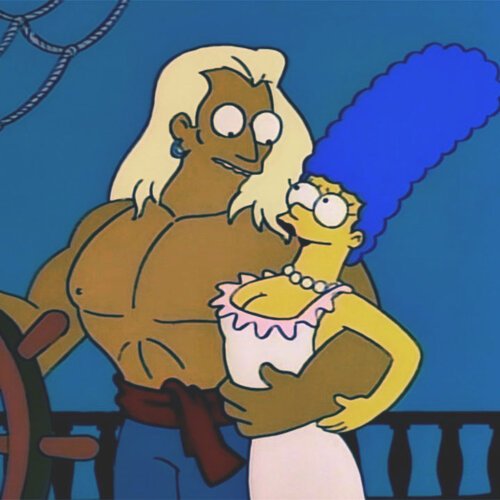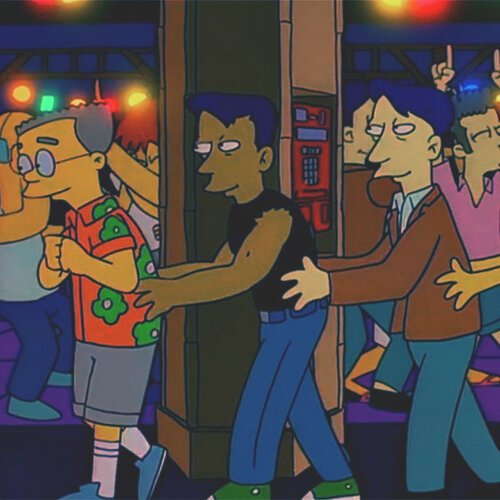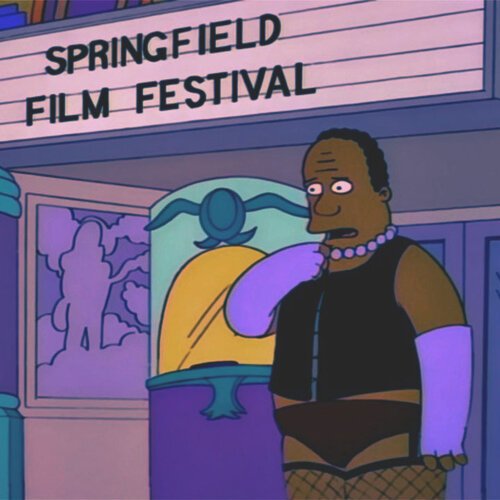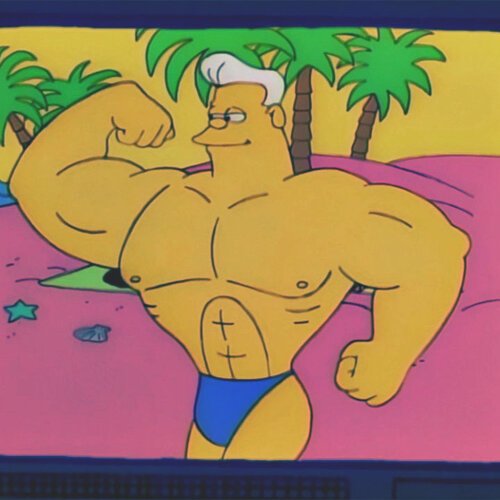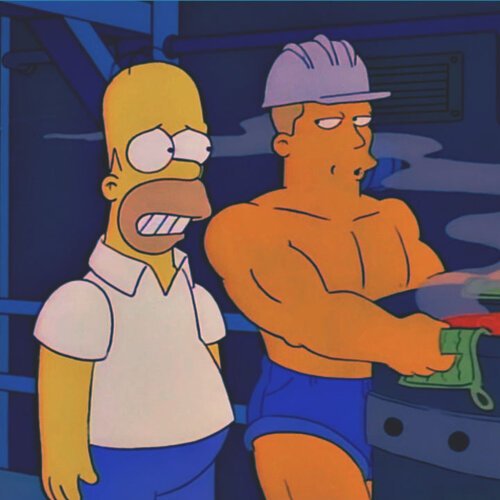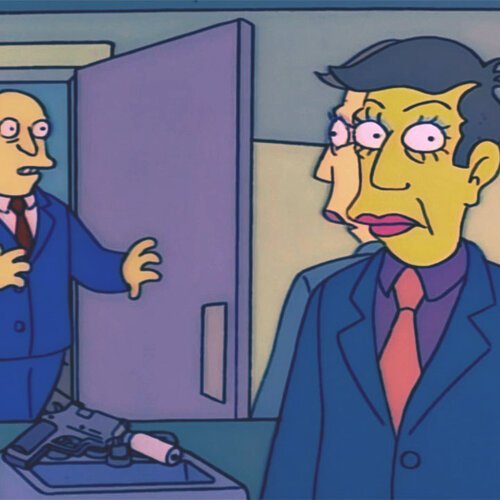Smithers & Beyond: Every LGBT Joke on The Simpsons Ever
Hi. Welcome to Smithers & Beyond: Every LGBT Joke on The Simpsons Ever, a video I put together and posted online as a supplement to my podcast Gayest Episode Ever. (There is also a version on Vimeo, if you prefer.) I decided to post some notes here about the project, but you can also hear Glen and I discuss it in the first episode of our fourth season, “Patty Bouvier Has a Girlfriend.”
So why did I do this?
Well, for one thing: quarantine. But this project actually began when I was preparing to record a Gayest Episode Ever about “Three Gays of the Condo,” a season 14 installment of The Simpsons, I was trying to find a chronological list of every LGBT reference ever on the run of the show and discovered that no such list existed online. I figured that if anyone should put one together, it should be the co-host of Gayest Episode Ever, a podcast about LGBT-focused episodes of classic sitcoms.
Listen to our Simpsons episodes:
Homer Simpson Is a Homophobe • Homer Moves to the Gayborhood • Patty Bouvier has a Girlfriend • Marge Simpson Is a Homophobe and a Transphobe • Smithers Has a Boyfriend • Troy McClure Isn’t Gay, But…
Also? This video helped get our friend Tony Rodriguez cast on The Simpsons! Take that, everyone who said it was a waste of time!
A year later, it’s ready for public consumption. I admit that it’s not only possible but probable that there are jokes I missed, so I consider this to be the first version of an on-going project. Please yell at me online about what I missed either on Twitter or at the GEE email. As is, the project comprises 31 seasons of The Simpsons and 684 episodes. I figured I’d cover the current season and subsequent seasons once they finish.
In putting it together, I realized that The Simpsons is unique in that it has focused on the same core of characters — voiced by the same group of actors and in some cases produced by people who have worked on the show sometimes for decades. As a result, tracking how the show deals with LGBT characters and issues might work as a reflection of how Americans themselves have evolved. I’ve been watching the show since the 1989 Christmas special, and as a result, the show introduced me to a lot of elements of gay culture that I wasn’t getting anywhere else. That’s been good in some instances, but often it also taught me bad lessons about what it means to be a gay person, in that way that happens when you’re young and your brain just absorbs everything without really understanding it. As it turns out, I didn’t grow up to be much like Smithers, but I still wanted to lay out everything the show offered me — the stuff that holds up today, the stuff that doesn’t age well, the stuff that maybe wasn’t great even back in the day — and let viewers decide for themselves what works and what doesn't.
I tried to insert commentary in the video only when the clips didn’t speak for themselves, when it wouldn’t be immediately clear from the context what was LGBT-related and why I included it.
In many cases, the footage has been sped up slightly or re-edited, both to evade YouTube’s copyright detector and to make the end product as short as I could make it.
Did I learn anything from this?
Well, had I picked King of the Hill or Seinfeld or whatever, I would have been done a lot sooner.
I did learn that LGBT jokes on The Simpsons fall into the following categories:
a reference to LGBT culture or homosexuality in general
implying that a character is LGBT
a minor character, usually anonymous, is styled to appear to be gay and offer up a line with stereotypical gay voice. (I say “gay” because there really isn’t much of lesbian, bi or trans characters that do this. It’s just gay men.)
That might seem like a “no duh,” but it was interesting to see the difference between Homer being shocked by looking at a Robert Mapplethorpe book and Milhouse unknowingly saying or doing something that marks him as effeminate.
Also, the show has had different eras in which LGBT humor functions differently. Again, that might seem obvious, but to me it was interesting to see how the show tracked societal attitudes toward LGBT people: from occasional references in early seasons because gay content was still taboo on broadcast TV to sometimes the majority of a given season having at least one LGBT joke per episode. As of the posting of this video, it’s rarer for an episode to make a one-off LGBT joke, either because it’s become more normalized for the people who make the show or because gay jokes are just told less often, generally speaking. It is worth pointing out, however, that the two most recent seasons of the show contain four separate episodes that a viewer might consider queer episodes: “Mad About the Toy,” “Werking Mom,” “Marge the Lumberjill” and “Livin’ La Pura Vida.” That’s a lot, and the LGBT humor featured in these episodes is more central to the plot — they’re tied to an LGBT character who’s part of the story.
Regarding the T in LGBT, there’s a lot more that can be improved. The show may have progressed with how it uses gay and lesbian characters — Smithers and Patty in particular — but it hasn’t done much to represent transgender characters. Gayest Episode Ever looks forward to bringing more guests in for future episodes to discuss how successful the show’s attempts at trans jokes have been.
I’m a 38-year-old gay man who has watched The Simpsons basically his entire life. It’s done more to affect me, my sense of humor and my understanding of culture and the larger world than actual real-life people I have known, which is kind of nuts to think about. If you are like me and have also thought about how The Simpsons has shaped you — as a person in general or as a queer person in particular — don’t hesitate to hit me up online. I really, really, really enjoy talking about The Simpsons.
Drew Mackie (co-host, Gayest Episode Ever)
